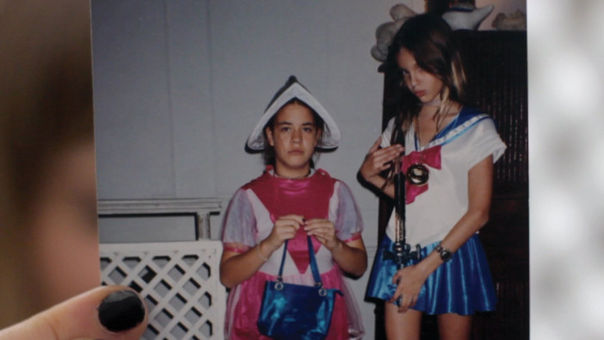Las lindas
by Laslo Rojas

Las lindas
What is beauty? What defines feminine appeal? What makes a woman pretty? A smile? A slender body? Long hair? A sexy voice? A stylish dress?
Melisa Liebenthal’s debut poses these and other profound personal questions in a moving autobiographic documentary, full of images and sounds typical of the millennial generation.
In Las lindas, Liebenthal addresses various issues that can become serious or critical (feminism, gender discrimination, bullying). Yet she does it with a fresh sense of humor, through various conversations with her best friends from her early school years, showing them and herself in photos and videos that Liebenthal recorded for years, since she was very little.
Critical with herself and also with those who judged and still judge her physical appearance (her clothes, her voice) the director displays an enviable capacity to make fun of herself, at times very harshly, but never succumbing to any kind of pathos, achieving with this approach to her personal history a great empathy with the spectators.
The film’s greatest accomplishment is that it stands out among the growing sea of productions made with fragments of homemade images, of home movies, whose biggest or sole value seems to be the absence of shyness. This is not the case of Las lindas, which isn’t shy at all, and which adds to that characteristic shared with other films of the kind a great dose of honesty and humour.
What is most interesting about Las lindas is the analysis the director performs, all throughout the film, of women’s behaviour as children, as teenagers and as adults, and of the expectations society imposes on them all along their lives, as schoolgirls, teenagers and mothers. It is nice to realize that in a young, teen world, supposedly full of trivialities and superficiality, there are voices, critical but not bitter, like that of Melisa Liebenthal.
Las lindas had a successful debut in the past edition of Rotterdam International Film Festival, where it received an award in the Bright Future section, and is one of the films to pay close attention to of the Official Argentine Competition of this edition of BAFICI.
Mariángela Martínez Restrepo - Talent Press BsAs Coordinator
Clara Picasso -Text translator

